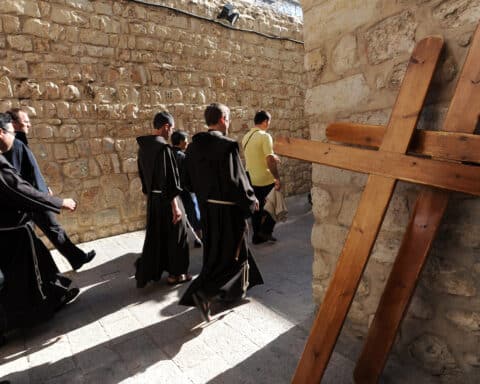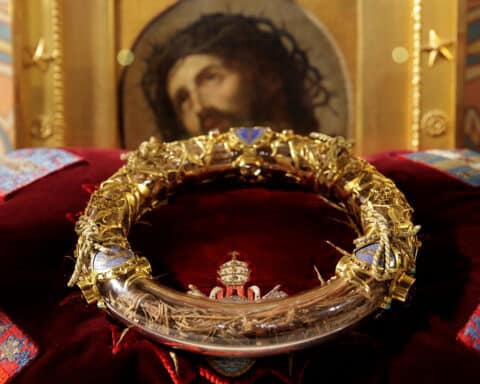It’s easy to feel penitential on Ash Wednesday. Most of us Catholics are quite good at it. We’re happy to forgo a meal or two and eat fish. The church is packed with fellow delinquents, all there to grovel before mercy’s throne. Heck, we’re even happy to receive ashes on our foreheads.
Ash Wednesday speaks to the fundamental recognition that there’s something wrong with the world. We believers know that this world is broken. Our claim is that sin has caused the imbalance. And on Ash Wednesday, we admit, even half-heartedly, that we have had something to do with it.
Because after all, the sin is not just out there in the world. It’s in me.
Do we have stamina?
It’s a tough thing to admit that we’re part of the problem. C.S. Lewis writes in a letter, “We poison the wine as He decants it into us; murder a melody He would play with us as the instrument. We caricature the self-portrait He would paint. Hence all sin, whatever else it is, is sacrilege.” I very much like this description of sin. It’s not only that we’ve offended God or broken a rule. But when we’ve sinned, we’ve inhibited a good thing, a noble beauty that God would have otherwise brought about in our lives.
I think the most difficult part of Ash Wednesday is that the ashes fade. It’s easier to be a good Catholic on Ash Wednesday. But then we have to shower. And our dusty repentance is washed away. Lent goes on. But does our spirit of contrition?
Boldly, we inaugurated our solemn campaign of penitence. But do we have the stamina to continue to do our penance? How badly do we want to root out our sins?
Don’t domesticate sin
I once had a garden near my rectory. And being very enthusiastic that spring about mint juleps, I planted some mint. The cocktails were fabulous. Fresh simple syrup. Good bourbon. And homegrown, organic mint.
But wouldn’t you know that plant was determined to take over the bed? So I’d cut it back and try to contain it. But it spread and spread. And spread!
Our sins are like that mint. We might think we’ve gotten the garden clear for a bit. But, boy, are they determined to keep coming back for more! And we must respond.
We might not see them at first. In his novel “The Moviegoer” Walker Percy writes, “Christians talk about the horror of sin, but they have overlooked something. They keep talking as if everyone were a great sinner, when the truth is that nowadays one is hardly up to it.” Percy is right. Our sins aren’t usually lions. Very often, they’re merely housecats.
But we can’t make our peace with our sins. We can’t tolerate them. We can’t ever domesticate them. We have to resist the urge to rationalize them, looking tirelessly to exculpate ourselves from the hideous prison of our shortcomings.
So we have to keep fighting, fighting past Ash Wednesday. We have to boldly face our vices, even the ones we’ve tried to keep as little pets, and drive them out!
“Holiness does not consist in never having erred or sinned,” says Pope Benedict XVI. “Holiness increases the capacity for conversion, for repentance, for willingness to start again and, especially, for reconciliation and forgiveness.” We don’t have to be complacent with our sin.
This Lent, let’s try to keep the spirit of Ash Wednesday about us. We can’t wear ashes on our foreheads every day, but we can continue our work of repentance and conversion.





